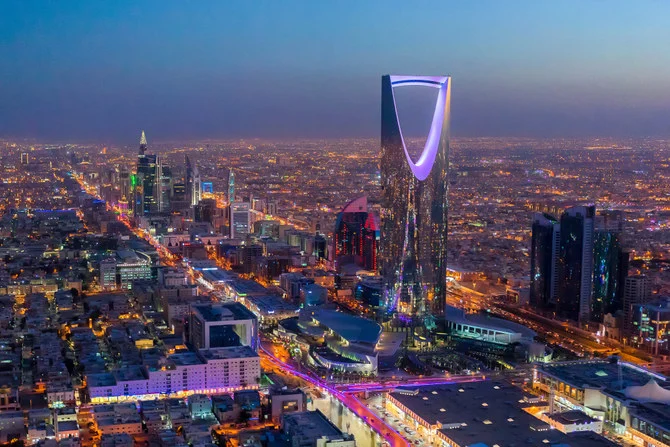Because of the rise in the price of oil, Saudi Arabia was able to record its first budget surplus in almost ten years. This was made possible by the country’s increased revenue.
According to the projections that the Saudi Arabian Ministry of Finance stated were preliminary, the 2022 surplus totaled 102 billion riyals, which is equivalent to $27 billion in U.S. currency. This is 2.6% of the country’s total gross domestic product.
It was projected that this year’s total revenues would come in at 1.234 trillion riyals, while total expenditures would amount to 1.132 trillion riyals.
The government of the country that is wealthy in hydrocarbons has authorized a budget for 2023 of 1.114 trillion riyals, and it anticipates that there will still be a surplus of 16 billion riyals. That is a huge decrease from the surplus that was recorded this year, equal to just 0.4% of GDP; nonetheless, it is still a surplus and is predicated on an oil price that is significantly lower than what many analysts estimate for next year.
Daniel Richards, a MENA economist at Dubai-based bank Emirates NBD, wrote in a research note that “our analysis suggests the budget is based on an oil price forecast of around USD 75 (per barrel), which is well below our house forecast of USD 105 (per barrel) for next year.” Richards’s comments were included in the document.
According to estimates provided by economic experts, the Kingdom of Saudi Arabia cannot achieve fiscal stability until the price of a barrel of oil rises to between $75 and $80.
On Thursday afternoon in London, international benchmark Brent crude futures traded up 0.2% to $77.45 a barrel, while U.S. West Texas Intermediate futures jumped 1.4% to $73.09.
The growth rate of the nation is expected to decelerate dramatically from 8.5% in this year to 3.1% in 2023, according to the finance ministry’s projections. This year’s growth rate was 8.5%.
According to a study from one rating agency, stable economic conditions are resulting in neutral outlooks being assigned to a large number of banks located in the Middle East, as stated by the rating agency Fitch. In contrast, Saudi Arabia stands out for having positive outlooks on the majority of its banks’ Issuer Default Ratings. According to a report published by Fitch this week, “driven by improvements in its balance sheet given higher oil revenue and fiscal consolidation,” Saudi Arabia has seen “improvements in its balance sheet given higher oil revenue and fiscal consolidation.”
However, experts at Goldman Sachs believe that spending would exceed the budget for the following year as a result of the Saudi Arabian government’s pursuit of expensive megaprojects such as the construction of the futuristic metropolis of NEOM, investments in Vision 2030, and other initiatives. Vision 2030 was introduced in 2016 by Saudi Arabia’s Crown Prince Mohammed bin Salman with the intention of radically modernizing and reforming Saudi Arabia while also lowering the country’s economic reliance on profits from oil sales.
The experts at Goldman Sachs anticipate a lower price for oil over the coming year compared to those at Emirates NBD.
In a research that was released on Thursday by Goldman Sachs, it was stated that their “own forecasts,” which were based on an average oil price of $90/bbl in 2023, lead to revenues of SAR 1,187bn, which is somewhat below 2022 predicted out-turn.
If our projected expenditures come in at SAR 1,213 billion, which is 9 percent higher than the budgeted amount, the end effect will be a deficit equal to 0.7% of GDP.
According to statistics taken from the government’s budget statement that was included in the study that was written by Goldman, a spending overshoot occurred in the year 2022, with current expenditure running over budget by 14%. Meanwhile, spending on capital expenditures was 64% greater than projected, and spending on government services was 9% higher than the previous year.
According to a statement written by analysts at Goldman, “The expenditure overshoot was mostly tied to expenditures on military and security, as well as healthcare.”
Oil supplies have been put under strain as a result of geopolitical developments, most notably Russia’s war in Ukraine and the subsequent sanctions on Russian oil from Western countries. As a result, the cost of energy has significantly increased.
According to Robert Mogielnicki, a senior resident scholar at the Arab Gulf States Institute in Washington, who was interviewed by the AFP, “a significant portion of the fiscal situation and growth story is of course directly related to high energy prices,” while “indirectly related to the factors and geopolitical events moving prices.”
In spite of this, he continued, “Saudi Arabia does deserve credit for its budgetary consolidation and economic reforms,” both of which have contributed to an improvement in the overall economic picture.






